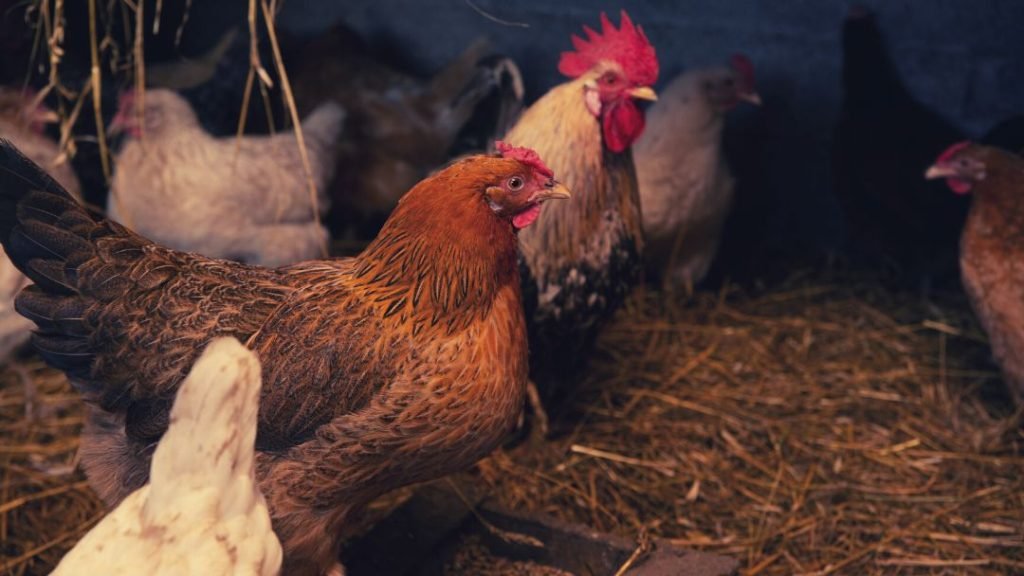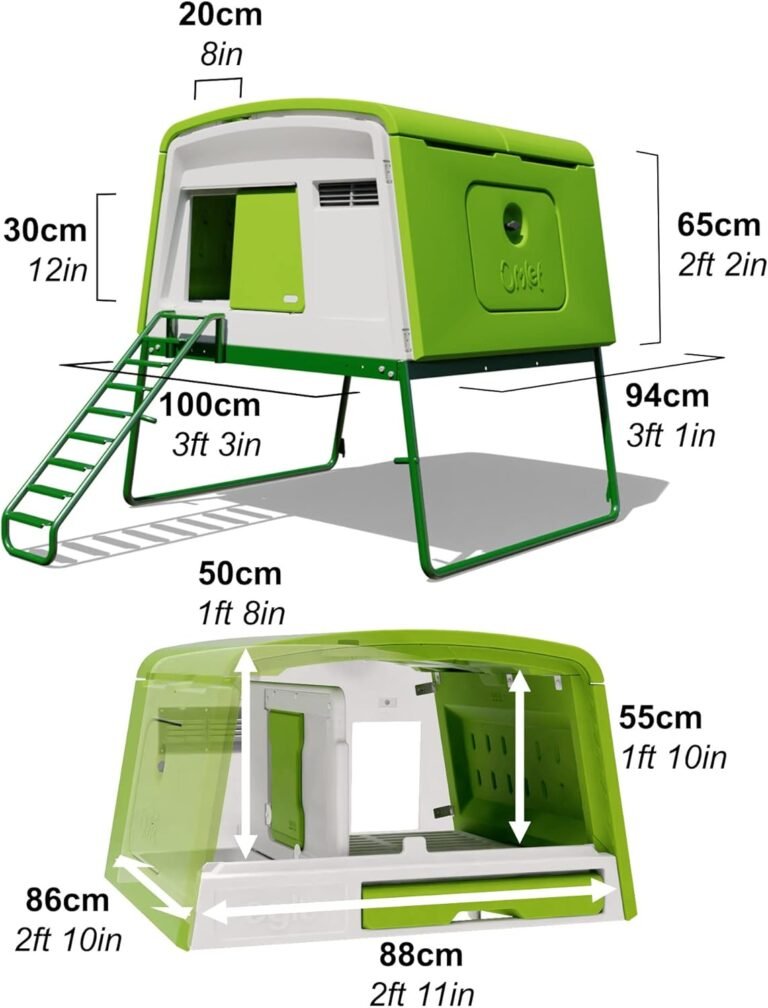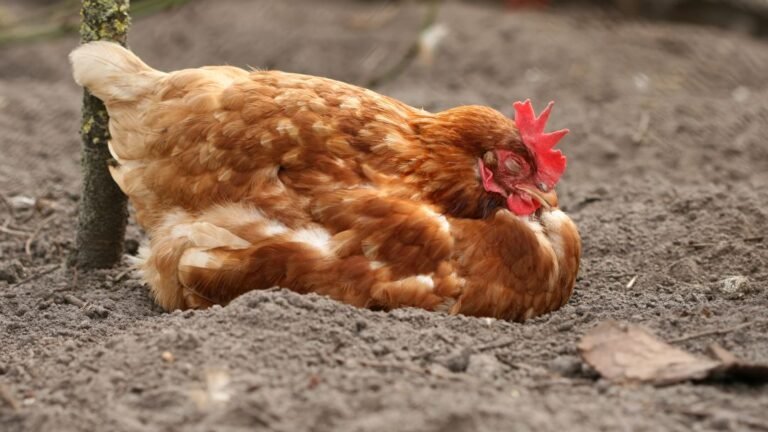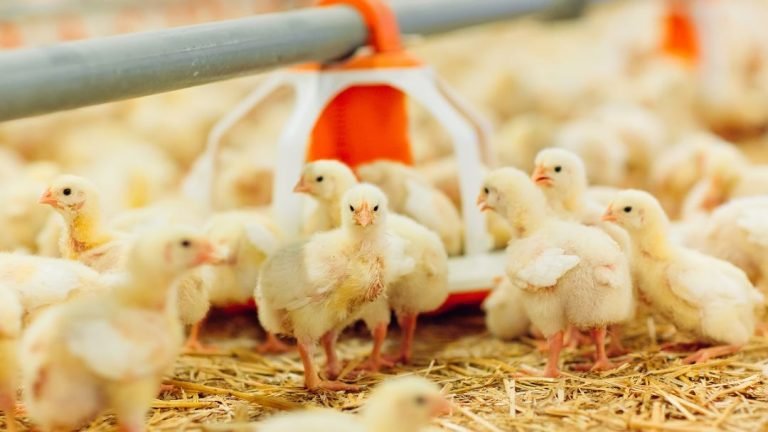Do you know chickens don’t see as well at night as they do during the daytime? These flocks need 14-16 hours of lighting and 8 hours of sleep daily. They have an uncanny ability to get sleep when darkness sets in. When they don’t sleep, they need adequate light inside the coop.
Does the chicken coop need light? A chicken coop must have proper lighting during dark conditions, as these birds have poor vision in low-light conditions. It will help them clearly see their feeds, waterers, roosters, and nesting boxes.
Importance Of Light In Chicken House
Why should you install lights in your chicken home? It must have some reasons, right?
Here is why you want to add a few lights in your flock coop!

01. Better Egg Production
Proper lighting is a must for chickens. They need around 14 and 16 hours of lighting per day.
Artificial light is needed when the chickens don’t receive enough sunlight due to extreme weather conditions.
This type of light produces higher wavelengths. It results in better stimulation of the hypothalamic photoreceptors, which ultimately drives a reproductive response.
It will affect their hormone flow if they receive less than 14 hours of lighting.
As a result, their egg production will decrease. In some cases, they will stop laying any eggs.
02. More Active Behavior
You can’t let chickens out during extreme weather, like too much hot, cold, heavy rains, or storms. They will harm your birds.
Chickens need to stay inside the coop when the outside environment is not good. But ensuring enough lights inside the house is the key.
A lack of light will cause a significant change in chickens’ behavior. Adequate lighting ensures proper stimulation of chickens, making them more active.
They can effortlessly find their feeds, waterers, roosters, and nesting boxes without crawling around.
It creates a comfortable environment for birds to keep repeating natural behaviors unless they sleep.
03. Less Fighting and Aggressiveness
Chickens become irrigated for remaining in dark conditions for more than 8-10 hours.
They may start fighting among themselves. Or, keep pecking on others’ feathers to vent their anger.
Proper lighting for 14-16 hours can eliminate their unwanted aggressiveness and self-destructive behavior.
04. Keeping Chickens Warmer
Flocks don’t go out too often during significantly colder weeks. Artificial lights can add a bit of warmth.
However, they can’t be a perfect alternative to heaters to provide enough heat.
The best choice is to use heat lamps, mainly used for baby chicks.
But you can use them for adult flocks to provide a good amount of heat and lighting.
05. Better Inspection
Apart from the chickens, lights also help chicken keepers to see everything clearly inside the house.
They can feed food and water properly and collect all eggs. Also, it allows them to inspect the behavior of each flock.
If any chicken is enough, they can quickly figure it out by counting their heads.
06. More Protection For Predators
Predators mainly attack chickens at night due to low light conditions.
Adequate lighting gives predators less chance to attack.
However, keeping all surrounding areas closed is crucial to prevent harmful animals from attacking your flocks.
What Color Light Is Best For Chickens?
Light’s duration, color, and intensity can affect a chicken’s overall health.
For example, a flock needs lights that release at least 5.38 lumens. However, the luminous flux per unit area should be 15lx.
Which color light should you choose for chickens? Many chicken keepers think blue, green, and red can be good choices for flocks.
But, studies showed the opposite. Chickens generally need a particular color of light that can mimic sunlight.
And guess what? White color light is the best choice for all types of chickens. The color should be soft enough not to irrigate flocks.
White lighting stimulates sexual maturity and ensures better egg production.
However, some studies showed blue light allows hens to lay slightly rounder eggs, whereas green lights make the eggshells stronger.
It is mainly applicable to commercial-based chickens, such as broilers.
Leaving Light On In Chicken Coop
Should you keep leaving the light on in your chicken coop when you are not around? It depends on external conditions and time.
If the weather is bad during the daytime, keeping the light on is good until the evening. Flocks don’t sleep during this period.
When it is time to sleep, the light must be turned off. Some chicken keepers leave the light on all day and night.
Apart from wasting energy, it affects the natural behavior of flocks. If it continues for several weeks, chickens may develop various problems.
As soon as late evening arrives, keep the light off. You can install timer-based lights in your chicken coop to automatically shut them down after a particular time.
Chicken Coop Light At Night
Apart from the daytime, some chicken keepers keep the light on at night. Unfortunately, the flocks can’t distinguish between artificial light and daylight.
Remember, flocks need both light and darkness for their healthy well-being. 8-9 hours of the night is necessary to help them sleep comfortably.
Chickens can’t sleep at night until it is enough. Intense lighting at night disrupts their natural sleeping pattern.
As a result, the flocks feel restless, and you may change their behavior. It also causes additional stress.
If it continues for several weeks, they may become sick. Plus, they may lay eggs less frequently.
But you can keep a single light on at a 10% to 20% brightness level. It should be away from the roost area where chickens sleep.
If the chicken coop is too small, keep on only the outside light.
When Can Lights Be A Problem For Chickens?
Everything has both pros and cons, and so do chicken’s artificial lights.
But what can be the problem? Let’s find out!
01. Disruption In Natural Behavior
Chickens live the best in the natural environment.
They can’t tell the difference between supplemental lighting and daylight lighting.
Continuously keeping flocks exposed to artificial lights for days will affect their internal systems.
After all, they are used to enduring only sunlight. Sudden and long-term supplemental lighting may make them sick.
02. Hazardous Issues
Are you using heating lamps? It might be common if the chicken coop has baby chicks.
However, it can lead to firing from poor wiring, potential sparking, or varying power wattage.
The sequence can be dangerous by killing a good number of chickens. It is often a common scenario during the winter months.
03. Imbalanced Environment
If your chicken coop has different ages of flocks, it can lead to a problem.
For example, baby chicks and adult chickens don’t need the same level of light intensity.
Stop using any lights if you want to raise different ages of chickens in a single coop.
Alternatively, set up separate chicken coops and ensure proper lighting based on their individual requirements.
04. Additional Stress
Irregular lighting can be another problem.
You may keep continuously leaving the light on for some days or not turning it on several times.
Both situations can affect the well-being of chickens.
It will cause additional stress in chickens as they fail to cope with the system.
Which Type Of Light is Better For Chicken Coop?
Dozens of types of lights are available for chicken coops. But not all of them are reliable and safe for chickens.
Incandescent bulbs are one of the best choices for chicken coops. They provide high light output.
Plus, these lights are pretty affordable and perfect for dusty environments. They don’t have any toxic materials.
But this option is only suitable for lighting small areas. Its lifespan is limited too.
LED lights are the best choice if you prefer a durable light with high coverage. They are expensive, but this type of light is energy efficient.
Avoid choosing any Teflon-coated bulbs because they release toxic gasses when heated. It may even kill your chickens.
Also, avoid using any heat lamps as they are prone to trigger firing issues.
Pro Tips For Lighting A Chicken Coop
- Keep the light on during the daytime if there is not adequate light outside.
- The lighting session should be at least 12-14 hours daily. Start early morning and turn it off in the evening (6 AM to 8 PM).
- Maintain consistency to create a routine-based environment for flocks.
- Install several lights to distribute lighting in all areas evenly.
- Avoid turning on artificial lights all day long. Increase the lighting sessions progressively by 30 to 60 minutes each week.
- Create separate sections for lighting different ages of chickens if the coop has enough space.
- Use artificial lights that have a timer to turn them off automatically during the night.
- Consult with a chicken veterinarian to plan better before installing lights.
Final Thoughts
Are you still wondering about this question: Does the chicken coop need light? If your chickens receive enough light during the daytime, they don’t need additional lights inside the house.
However, the weather doesn’t stay throughout the year. Heavy rains, storms, and freezing weather are common every year. Chickens need lights during these dire times. But, ensuring the right level and amount of lighting at the correct time is vital to ensure optimal health conditions.



